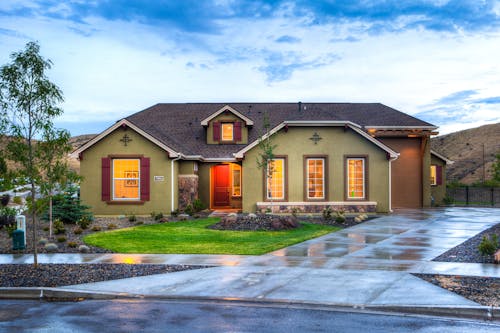Appraisal Gaps
By Gary Lee Pollard
Why appraisal gaps occur and what to do

So what is an appraisal gap? An appraisal gap is when a home's appraised value is lower than the purchase price the buyer offered to pay. Appraisal gaps are becoming increasingly common in competitive markets like what buyers are facing today --and they can seriously complicate matters if you aren't prepared. Because buyers are faced with a low supply, the market has become very competitive, driving up prices.
In real estate, an appraisal gap might occur when an appraiser estimates the value of the house to be lower than the offer price that has been agreed to by the home buyer and seller. For example, if a buyer agrees to purchase a home for $400,00 and the property appraises at $375,000, there is a $25,000 appraisal gap that will need to be dealt with in the transaction. This is a problem because lenders will typically cover a loan for only the appraised value of a home -- so if that appraisal is lower than what the buyer has offered, the buyer is stuck covering the difference.
How the loan-to-value ratio affects the appraisal gap
Lenders use a loan-to-value (LTV) ratio to determine how much money thay will put out for a loan. This LTV ratio is a percentage of the home's value. Most conventional lenders like banks prefer an LTV ratio of 80%(or lower), which means that buyers need to make a 20% down payment. Lower down payment programs are available in some cases. When an appraisal comes in low, the total amount that lenders let buyers borrow changes.
Let's say, for instance, that the buyer has agreed to pay the seller $400,000 for a house and is willing to make a 20% down payment amounting to $80,000. This leaves the lender with an LTV ratio of 80%. However, if the appraisal comes in lower at $375,000, the bank will be willing to loan the buyer only 80% of that, or $300,000. Yet given the buyer has agreed to pay the seller $400,000, this would mean the buyer will need a total of $100,000 to cover the difference. In addition to the $80,000 down payment, the buyer will need to find an additional $20,000 to close the deal.

As you can imagine, most buyers aren't thrilled at the prospect of having to come up with thousands of extra dollars by the time they sit down at the closing table. After all, not everyone has the cash on hand to cover a large unforeseen expense. Fortunately, there are some best practices to help you navigate an appraisal gap if one comes up in your transaction.
Address how to handle an appraisal gap in the agreement
Including an appraisal gap clause in your offer is a way to tackle this situation head on. In Texas this is handled through a specific form with options. You can spell out for the seller what you are willing to do if an appraisal gap occurs. For example, you could agree to pay the full amount of the difference or put a set amount of money toward the gap. In short, including this method in your offer can help you limit your exposure. Still, at the same time, since you're willing to put extra money out for the home, it will also help give the seller a better sense of your motivations.
Request an appeal of the appraisal
When you request an appeal of an appraisal, you're essentially asking for the appraisal to be redone by another neutral third party. The hope is that the new appraiser will think the property is worth more than the figure in the original appraisal. If so, you might be able to close the appraisal gap. However, there is no guarantee that the new appraisal will be any different. If you decide to go this route, ask your real estate agent to provide comparables that support your proposed purchase price. That way, you'll be able to provide evidence that supports your offer.

If there's an appraisal contingency in your offer and your appraisal comes back low, you'll have the option to renegotiate the purchase price with the seller. That said, again, there is no guarantee that the seller will be willing to accept a lower price. Especially in a competitive market, there is very little incentive for the seller to do so.
Comment